Resources
This article addresses the epistemological disarray and secularizing trends in American culture, while also suggesting a way for Catholic institutions to meet their responsibilities under Ex Corde Ecclesiae. It employs Bernard Lonergan's work to establish a theoretical foundation for education and outlines two specific liberal arts courses, Beginning with Knowing, in which students develop a methodological foundation for objective knowledge, and The Catholic Tradition, which transmits important Catholic perspectives and values.
Over the past fifteen years in New Zealand, theology has come in from the tertiary educational cold in various ways. One of the results or reasons for this has been willingness on the part of the state to accredit and provide funding for theological education and research. This has taken place largely through a compliance system of accreditation and resource allocation. The result has been academic recognition and a precarious financial boon for theology and some theological institutions and their students. But little attention has been paid to the epistemological and pedagogical temptations of compliance. Drawing on the recent experience of the writer, this article seeks to identify a number of the subtle temptations posed by state sponsored theological education and research.
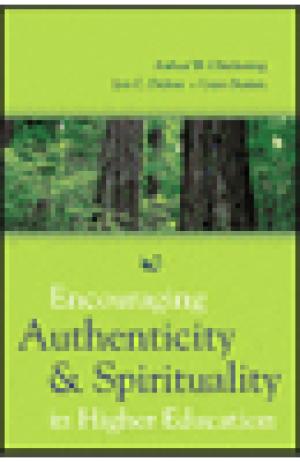
Encouraging Authenticity and Spirituality in Higher Education is a comprehensive resource that explores the theory and research and examines the current initiatives on the topic of spirituality in higher education. The book provides an array of illustrative examples to guide interventions in curriculum, student affairs, community partnerships, assessment, and policy issues. The authors cover the social and historical background as well as the implications for practice. (From the Publisher)
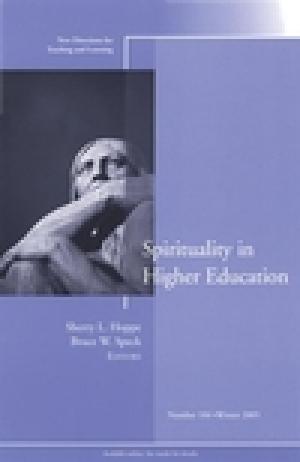
Questions about meaning and purpose are as old as humans, and in the earliest days of higher education, the search for truth was the ultimate journey of the student. Over the decades, though, the academy has often shunned the spiritual aspect of a student's education. Whether that is to avoid controversy or to protect from acknowledging that all is not known, there is a predisposition to avoid talking about spirituality in the academy. Regardless, the result is the creation of what T.S. Eliot called "hollow men" who live in this world but do not know why they are here and thus do not know how to live their lives. This book is one of many responding to a reawakening of desire to avoid such creatures. Its purpose, at least in a cursory way, is to look at spirituality in academe through a number of lenses. Composed of chapters from both faculty and administrators, this volume offers insight into the critical need for spirituality in educating the whole student while recognizing that how spirituality is viewed and taught (and experienced) is intensely personal. The goal is not to prescribe how spirituality should be integrated but to offer multiple options and perspectives. Not only will readers learn about the complex and vital role of spirituality, they will also be reminded that the quest for truth and meaning, not the destination, is what is vitally important in shaping discussions about spirituality.
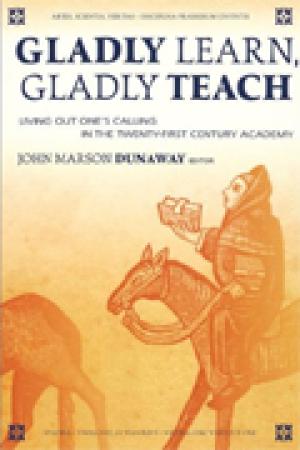
These essays come from scholars in a wide variety of fields: not just theology, but law, literature, political science, education, and philosophy. The essayists are teacher-scholars who genuinely seek to live out the sometimes-competing vocations of professor and believer. Though most of them teach in church-related institutions, they not only affirm the need for a clear theological vision on which to base institutional and pedagogical planning; they also stress the importance of diversity, pluralism, and true academic freedom. (From the Publisher)
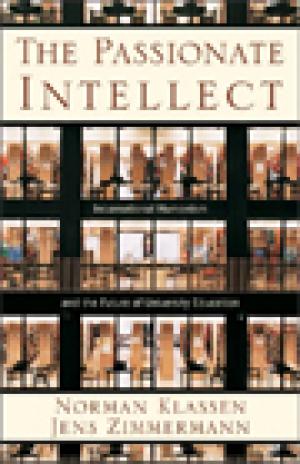
Chronicles the development of the intellectual culture of the Western university and proposes an approach to university education that keeps faith with central Christian doctrines. (From the Publisher)
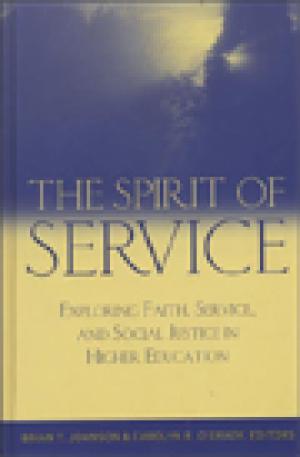
In The Spirit of Service , the contributing authors explore the intersection of faith, service, and social justice in higher education. Reflecting upon the role that higher education plays in preparing future generations of citizens and leaders, this book asserts that spirituality and values necessarily involve one's person—and that educators must begin to connect student learning with the human experiences of faith, service, and commitment to social justice. Each of the authors describes a teaching experience in order to critically reflect upon the divide in academic culture between responsible, rigorous, intellectual competence and personal values. The authors' lessons in success and failure are meant to provide guidance for all institutions that are committed to preparing young students to lead lives of leadership and civic engagement. Divided into three parts, this book: * Explores the meaning, practice, and implications of religions or spiritually motivated service * Offers specific examples from faculty for integrating faith or spiritual perspectives with service, including what has worked and what dilemmas remain * Focuses on specific dilemmas and implications for engaging in service for social justice Containing a wealth of practical suggestions and strategies, The Spirit of Service represents a conversation in progress; it is an attempt to understand how to help undergraduates integrate service and spirituality for the purpose of social justice. (From the Publisher)
Journal Issue.
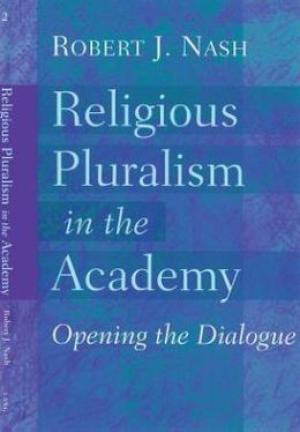
This book argues that American colleges and universities need to enlarge their understanding of pluralism and multiculturalism by sponsoring open, challenging, spiritually and educationally revitalizing conversations among students about genuine religious difference. Although religious difference is a pivotal component of cultural pluralism, too often today it gets ignored, marginalized, or sugar-coated in higher education. Together administrators, faculty, and students must take the initiative to tranform the academy into an exciting space for robust and respectful religious dialogue throughout the campus. This book offers a number of concrete examples and strategies in each chapter for achieving this objective. (From the Publisher)
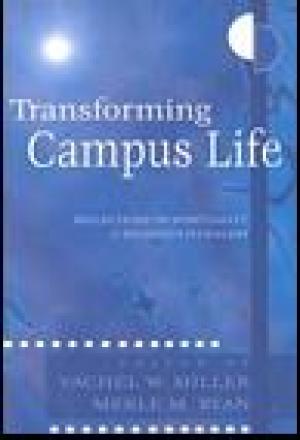
How can campus life become more hospitable to the human spirit? This book invites everyone concerned with the quality and meaning of campus life to engage in new conversations about the spiritual and religious dimensions of diversity, leadership, student development, and learning. This book challenges conventions in higher education that neglect religious identity and spiritual exploration while perpetuating disconnection, competition, and separation from our natural and social environments. It offers innovative approaches for positive change, while addressing the complex legal, organizational, and cultural issues involved in this conversation. Grounded in original research and professional practice, this collection includes reflections from college presidents, campus leaders, student affairs staff members, and faculty. (From the Publisher)